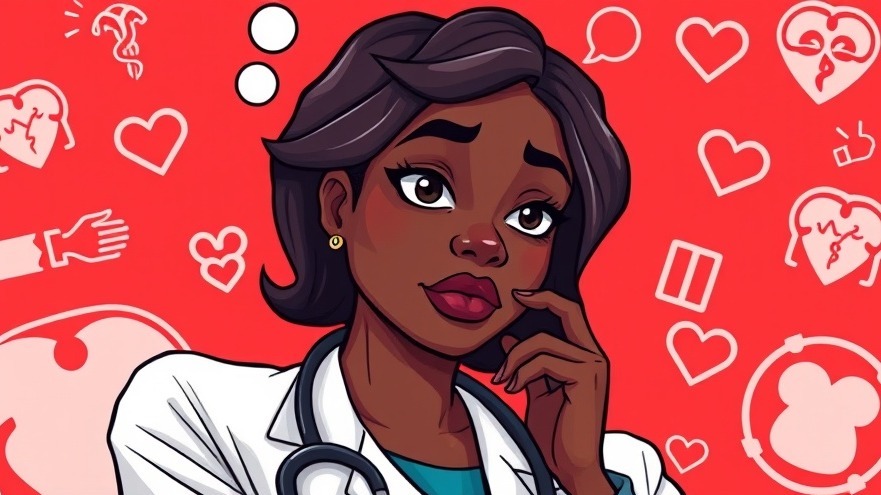
The Vital Role of Organ Donation in Saving Lives
Imagine the impact you could have by making a single decision: donating your organs. Organ donation is not just a noble act; it is a lifeline for countless individuals waiting for transplants. With many people on the waiting list and only a limited number of donors available, the importance of organ donation cannot be overstated. As discussed in the video, organ donation can take place either after a person has passed away or through living donations, where a healthy person donates an organ, such as a kidney or part of their liver, while still alive.
In 'The Truth About Organ Donation: Myths vs. Facts,' the discussion dives into the common misconceptions surrounding organ donation, exploring key insights that sparked deeper analysis on our end.
Addressing Myths: What You Need to Know
Anyone considering organ donation may have heard a number of myths and misconceptions that can make the decision feel daunting. One prevalent myth is that medical professionals will not work as hard to save your life if you are an organ donor. The truth is, this belief is entirely unfounded. Emergency medical teams are ethically bound to do everything possible to save a patient's life. The process of determining organ eligibility only occurs after all possible efforts to save a patient have been exhausted.
Another misconception is that age limits people from donating organs. The reality is, age is not a barrier; rather, it is the condition of the organ that matters. A 75-year-old's heart may be just as viable as a 35-year-old's, allowing for the possibility of donation.
A Personal Decision: The Impact of Your Choice
Choosing to become an organ donor is deeply personal. Donating organs after death can save an average of eight lives. This selfless act not only honors the memory of the donor but also provides another chance at life for those who desperately need it. For many families, the decision to donate can alleviate the burden of making such choices in a moment of grief, as the conversation around organ donation can occur before the time comes.
Empathy in Action: Thinking Beyond Yourself
As emphasized in the podcast, every individual should consider their potential effect on others—especially on family and loved ones. Would you want your mother, father, or child to have to wait for a kidney? By becoming an organ donor, you can offer hope to someone in your family or community who may need an organ transplant. The act is about enhancing lives and creating connections between individuals, emphasizing our shared human experience.
Take Charge: The Role of Education
Educating yourself and those around you on organ donation is vital to overcoming the stigmas associated with it. As more people understand that many religions and belief systems accept organ donations, the barriers to registration diminish. Conversations surrounding the topic can be difficult yet crucial, as they can significantly increase the number of registered donors and ultimately save lives.
In a world where the need for organ donors continues to grow, it’s essential to counter misinformation and encourage individuals to consider impending decisions. Speak with family members, friends, or even community leaders to foster a broader understanding of the life-altering impacts that organ donation entails.
In summary, the necessity and impact of organ donation are immense. It’s time to erase the myths, have meaningful conversations, and consider the lives you could touch by making this one simple choice. Whether you’re looking to donate after passing or while still alive, being an advocate for organ donation is a powerful act of love and humanity. Let's take the first steps towards increasing awareness and dispelling misconceptions about the realities of organ donation—because the lives of many depend on it.
 Add Row
Add Row  Add
Add 




Write A Comment